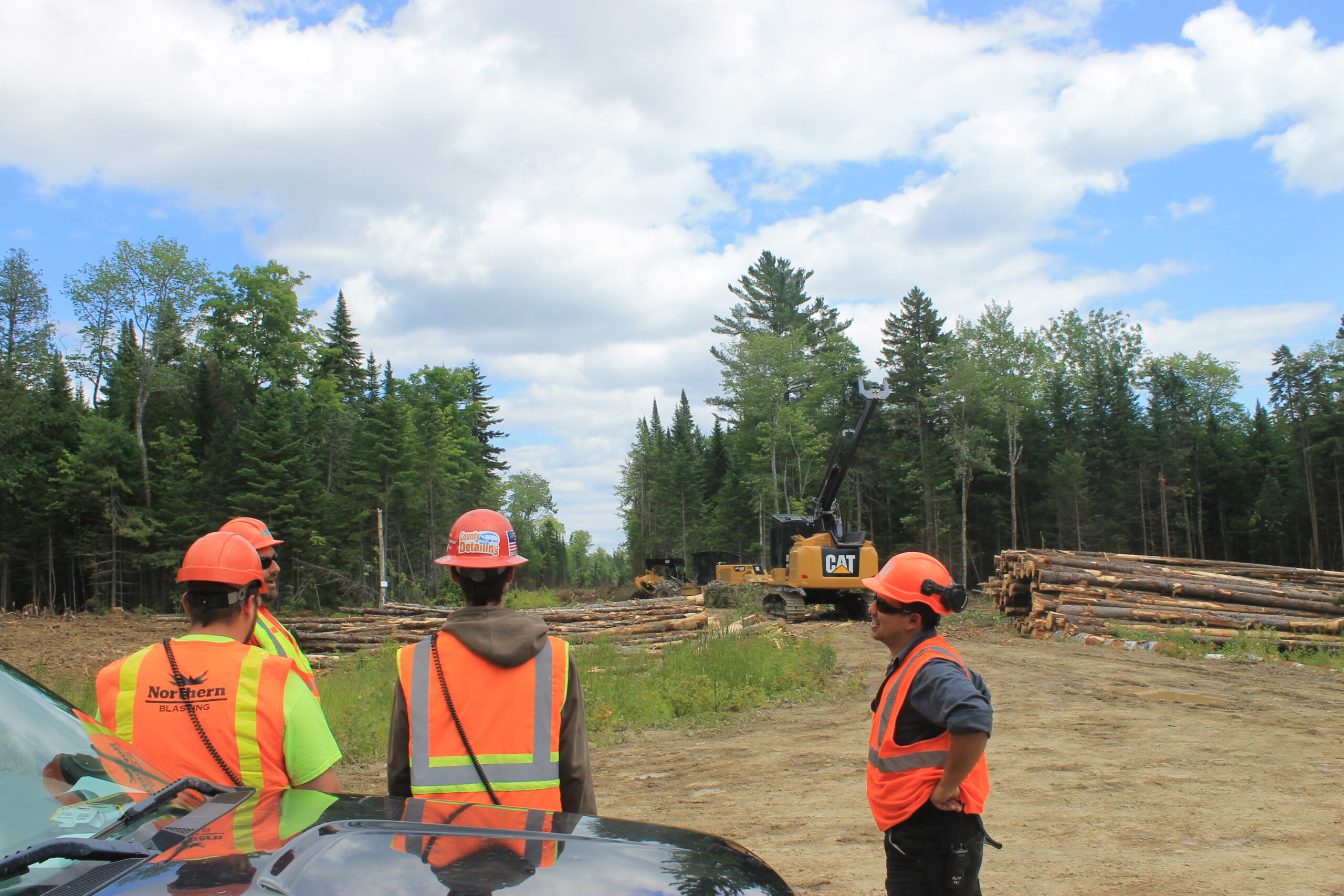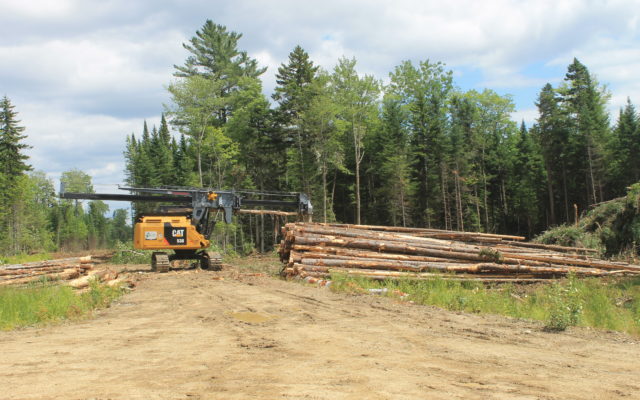
CHAPMAN, Maine — This July, a group of students are working at a woodlot in Chapman learning how to run a mechanized logging operation through a certificate program with Northern Maine Community College in Presque Isle.
Now in its second year, the 12 week mechanized logging program was developed by NMCC, Eastern Maine Community College in Bangor, Washington County Community College in Calais and the Professional Logging Contractors of Maine, as a way to help train the next generation of loggers using today’s advanced logging equipment.
“The industry is looking for people. There’s no two ways about it,” said lead instructor Don Burr, a logger with 25 years experience who’s also run safety and mapping programs.
“Four or five contractors are contacting me regularly saying we want people.”

Don Burr, head instructor with Northern Maine Community College’s mechanized logging program, watches as student Will Shufelt practices using a delimber machine at a woodlot in Chapman. (Anthony Brino)
The students, all young men in their late teens and 20s, represent the future of the state’s logging workforce. The program is tuition-free thanks to a grant from the Maine Legislature to the Maine Quality Centers and matching funding from the state’s logging industry.
This year’s cohort includes Corey Eastman, a fourth generation logger-in-training from Greenbush; Evan Burburgay, a 2018 graduate of Caribou High School; Will Shufelt, a recent high school graduate from Gray; and Jack Houtz, a Connecticut native with a University of Maine forestry degree who wants to start his career as a logging operator.
“I worked on the university logging crew. We helped manage the 13,500 acre forest that the university and university foundation own,” Houtz said. “I liked that a lot and that translated into me taking more of an interest in the logging side of forestry. I wanted to get my feet wet in equipment.”
On two 20 acre blocks of woodland owned by Prentiss & Carlisle in Chapman, all of the students are getting their feet wet learning to operate feller bunchers, cut to length harvesters, delimbers, grapple skidders, and forwarders. All of the harvesting equipment is donated from Milton CAT and Nortrax Inc.
Their training started with two weeks in the classroom learning about equipment, tree identification, safety and using virtual equipment simulators. They’re now learning at the training site and are rotating through the equipment, “just getting to know it,” said Burr.
Later, they’ll learn how to run the machines productively and the “nitty gritty,” including maintenance and repair.
“Right now they’re crawling and hopefully we’ll get them to a steady walk when they leave,” Burr said.
“They say that to train a new operator is upward of $100,000 in expense. It’s lost time, lost fuel, lost valuable wood.”
Burr said the program is among the first of its kind in the country and is helping to fill the pipeline in the state’s logging workforce, which is currently dominated by older men, many approaching retirement age.
This is the second session of the program and the first in Aroostook County. Last year’s took place in the Millinocket region and next year’s will likely take place in the Calais area with Washington County Community College, said Leah Buck, assistant dean of continuing education at NMCC, which is administering the program.
Maine’s forest products sector is worth an estimated $8.5 billion annually and supports more than 7,300 direct and indirect jobs in the state.
Burr said that the students will continue learning as they work in the industry, but the program is getting them off to a good start.
“They’ll be in a very good position to go and get into a piece of a equipment, figure it out and embrace it. They’ll know what five pieces of equipment do and what a good logging job looks like.”
- Will Shufelt, a recent graduate of Gray New Gloucester High School, operates a delimber machine on July 18 at a woodlot in Chapman during the 12 week mechanized logging training program offered by Northern Maine Community College in conjunction with the Professional Logging Contractors of Maine and two other community colleges. (Anthony Brino)








